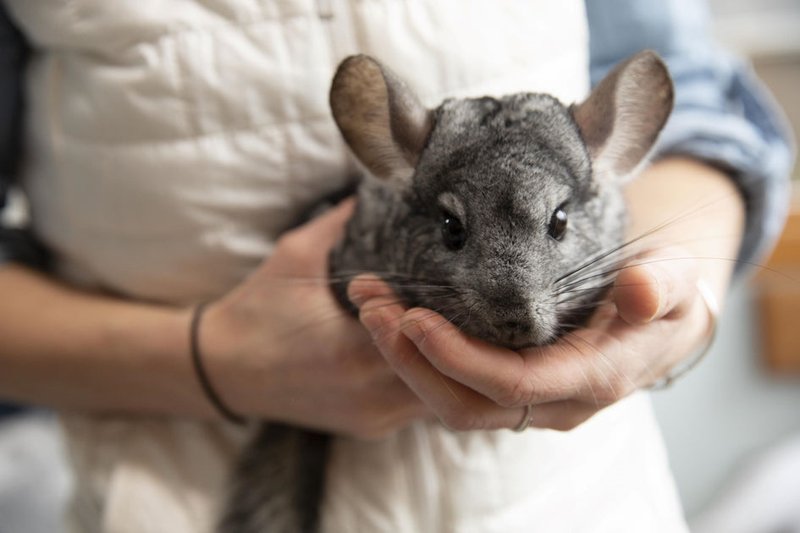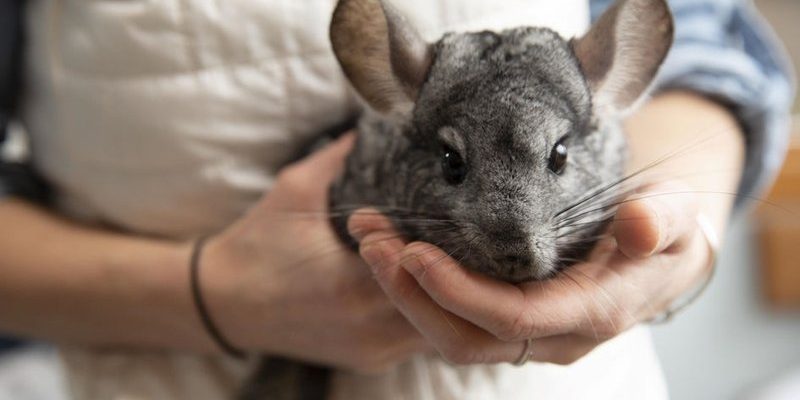
Imagine you’re caring for a small, delicate creature that’s as sensitive as a flower. The right balance of diet, exercise, and environment can make all the difference. In this article, we’ll explore the common health concerns in violet chinchillas and how to prevent them, ensuring your furry friend stays in tip-top shape. So, grab a cup of coffee and let’s dive in.
Dietary Issues: The Foundation of Health
When it comes to keeping your violet chinchilla healthy, the diet is the cornerstone. These little furballs have specific nutritional needs that must be met. If their diet isn’t right, you might start noticing signs of distress, like weight loss or lethargy. Honestly, it’s a bit like giving a toddler only junk food and expecting them to run a marathon!
Chinchillas thrive on high-fiber diets. Their primary food should be hay, like timothy or orchard grass, which helps their digestive system function smoothly. Additionally, they can enjoy small amounts of pellets formulated specifically for chinchillas. You might be wondering about treats—sure, they can have some, but go easy on fruits and vegetables. Too much can upset their stomachs.
To recap, here’s what a good diet looks like:
- Unlimited hay to chew on
- Quality pellets designed for chinchillas
- Occasional treats like dried herbs or flowers
Dental Problems: The Hidden Danger
Dental health is another crucial aspect of a chinchilla’s well-being. Just like humans need regular dental care, chinchillas do too. Their teeth continuously grow throughout their lives, and if they don’t wear down naturally, they can become overgrown, leading to what we call dental problems. Picture this—a tiny rabbit trying to munch on its favorite food but struggling because its teeth are too long!
Signs of dental issues can include difficulty eating, drooling, or even weight loss. To help prevent these problems, ensure your chinchilla has plenty of chew toys. Natural wood blocks or special dental chews can help keep their teeth in check.
Here’s a quick reminder on how to support good dental health:
- Provide plenty of chew toys
- Ensure a high-fiber diet to promote teeth wearing down
- Regularly check their teeth for any abnormalities
Respiratory Illnesses: A Breath of Fresh Air
Chinchillas are quite sensitive to their environment, especially when it comes to breathing. Dusty conditions or sudden changes in temperature can lead to respiratory issues. Imagine being in a stuffy room; it’s not comfortable, right? For chinchillas, this discomfort can quickly escalate into serious health concerns.
Common signs of respiratory illnesses include sneezing, coughing, and nasal discharge. To help prevent such issues, ensure that their living area is dust-free. Opt for dust-free bedding and maintain a stable temperature, ideally between 60-70°F. Avoid placing their cage in drafty areas or near direct heat sources.
Here are some preventive measures:
- Use dust-free bedding for a cleaner environment
- Maintain a suitable temperature
- Keep their living space well-ventilated
Heatstroke: Keeping Cool
Heatstroke is a real concern for chinchillas, especially during hot summer months. These adorable creatures come from cool climates, so high temperatures can be overwhelming for them. Think of it like being in a sauna for a furry pet—it’s not fun at all!
Signs of heatstroke include panting, lethargy, and even seizures. To prevent heat-related issues, keep your chinchilla’s environment cool and well-ventilated. You might consider using a fan, but don’t point it directly at them. A temperature range of 60-70°F is ideal.
Here are some tips to keep your chinchilla cool:
- Keep their cage in a ventilated, shaded area
- Use frozen water bottles wrapped in a cloth for them to lean against
- Avoid excessive handling during the hottest parts of the day
Fur Health: The Soft, Fluffy Armor
If there’s something chinchilla owners cherish, it’s that soft, fluffy coat. However, fur health is something that can be overlooked. Chinchillas can develop skin problems or even fur mites if their coat isn’t cared for properly. Just like we need a good shampoo now and then, chinchillas also need regular grooming.
You might not think about it, but providing a dust bath a few times a week can help keep their fur clean and healthy. It’s not just for fun; it’s essential for maintaining that gorgeous coat. If you notice any bald spots or excessive scratching, it’s time to consult a vet.
To keep that fur in top condition:
- Provide regular dust baths
- Groom them gently to remove dead hair
- Keep an eye out for any skin issues
Regular Vet Check-ups: The Safety Net
Finally, regular veterinary check-ups are one of the best ways to catch health issues early. Think of it as an insurance policy for your chinchilla’s health. Even if everything seems fine, a vet can help spot potential problems that you might not notice.
A vet who specializes in exotic animals will have the knowledge necessary to assess your chinchilla’s unique needs. It’s typically advised to take them in at least once a year for a full health check-up. They can also provide vaccinations if needed and offer additional advice on diet and care.
In summary, don’t forget:
- Schedule annual vet visits
- Look for a vet specializing in exotic pets
- Don’t hesitate to ask questions about care and health
In conclusion, keeping a violet chinchilla healthy is about understanding their needs and being proactive. These little creatures bring so much joy, and by being aware of common health concerns, you can ensure they lead a happy, healthy life. From providing the right diet to regular vet visits, each step you take is a step toward a thriving pet. Together, we can make sure your furry friend stays as vibrant and lively as their beautiful violet fur!

